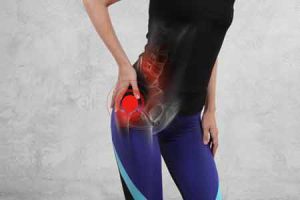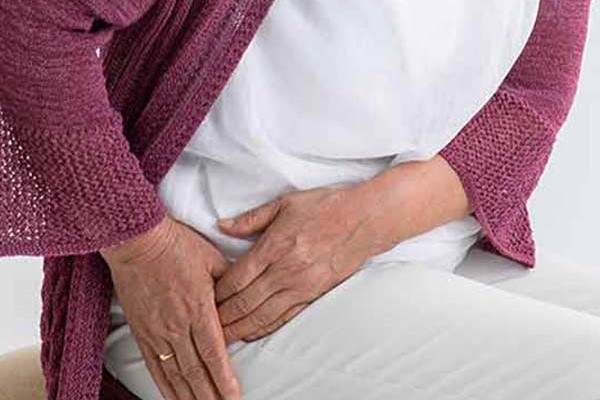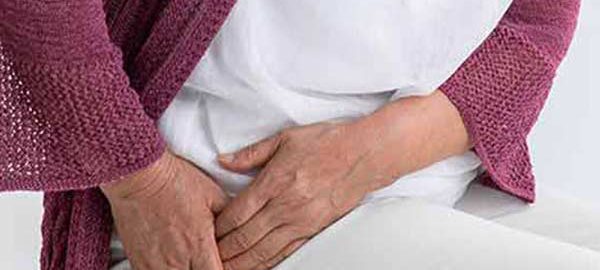When you tell your orthopaedic in Delhi that your hip is hurting, the first thing the doctor needs to do is confirm that the balance is the problem.
Women can say they have hip pain, but they can also say that they have pain in the upper thigh or upper buttock.
These hip pains may be faced with minor back pain. Hip pain can be felt very often in the area of the abdomen or the outer part of the hip over which its joint is located.
Causes of hip pain
If a female patient complains of hip pain, the orthopaedic in Dwarka firstly considers the patient’s age and level of activity. Among the most common causes of hip pain in women, we mention:
- Arthritis. The most common causes of chronic hip pain in women are arthritis, especially osteoarthritis, which affects many people as they get older. Arthritis pain is most often felt in the front of the thigh or in the abdomen area, due to stiffness or swelling.
- Hip fractures. Hip fractures are common in older women, especially those with osteoporosis (decreased bone density). Symptoms of a hip fracture include severe pain.
- Tendonitis and bursitis. Many tendons around the hip connect the muscles with each other. These tendons can easily become inflamed if you overload them or participate in intense physical activity. One of the most common causes of tendonitis in the hip joint, especially for athletes, is the iliotibial tract syndrome. Another common cause of hip pain in women is exchange. There are some liquid bags in the bony side of the hip, called bursa pillows. Like tendons, these bags may become inflamed from irritation or over-stress, causing pain every time the hip joint moves.
- Hernia. In the abdomen area, the groin and femoral hernias – sometimes referred to as sports hernias – can cause anterior (frontal) pain in the woman’s hip. Pregnant women may be sensitive to groin hernias due to the pressure added to the wall of their abdomen.
- Gynecological problems. Hip pain in women can also have gynecological causes. It is important not to just realize that the pain can be caused by arthritis, bursitis or tendonitis. Depending on the age or other health problems, hip pain may also come from another system. Endometriosis can cause pelvic sensitivity, so some women describe this problem as hip pain.
Back pain or spinal pain can also be mentioned and felt around the buttocks or hip. Sciatica can cause pain in the back of the hip – sciatica pain can start in the lower back and reach the buttocks and even the legs.
Arthritis is a common cause of hip pain and mobility change. More than a quarter of older adults develop coxarthrosis pain, which threatens mobility – slower walking, difficult stairs. The term “arthritis” is covered under a number of different conditions, including osteoarthritis and inflammatory diseases, such as rheumatoid arthritis and psoriatic arthritis. If you find out what kind of arthritis you have, you must be able to successfully reduce hip pain. And finding out the type of arthritis is a solution that reduces your hip pain. The most common type of arthritis is osteoarthritis. Osteoarthritis can also result from a common injury, sometimes called traumatic arthritis.
Factors that increase the risk of osteoarthritis include:
1. Aging;
2. Obesity;
3. Deterioration or various injuries in the joint;
4. Structural problems with the joint;
5. Rheumatoid arthritis.
Symptoms of osteoarthritis develop slowly, starting with stiffness or pain in one or both bones of the hip and eventually becoming painful enough to prevent various normal activities (walking or climbing stairs).
Rheumatoid arthritis can also be a problem that causes pain. Inflammation may occur due to an abnormality of the immune system. Rheumatoid arthritis is a chronic disease that can affect the entire body, not just the hips. It starts with a swelling of the mucosa of the joints, called the synovial mucosa and progresses to the deterioration of bones and cartilage. The cause of rheumatoid arthritis is not fully understood, although an abnormal response of the immune system to the body contributes to the disease.
Symptoms of rheumatoid arthritis also include:
a. Pains that increase slightly in intensity in the symmetrical joints;
b. Swelling of the affected joints;
c. Fatigue;
d. morning rigidity;
e. Pain after a period of stay;
f. Weakness;
g. Muscle pain ;
h. Anemia.
Early diagnosis of rheumatoid arthritis is critical to maintaining the quality of life. Medications can slow the progression of this disease. A less common type of arthritis that causes joint pain is psoriatic arthritis, a complication of psoriasis, inflammatory skin disease.
Strategies to ease discomfort:
- Lose weight if you are overweight in order to ease the weight of the joints;
- Try analgesics, but be careful about recommended doses or warnings;
- Ask your doctor for more information about common supplements such as glucosamine and chondroitin.
- Work with a physical therapist to do stretching and flexibility exercises;
- Use ice and heat to relieve painful areas.
If your mobility is impaired, ask your orthopaedic in West Delhi if you would like the assistance of a support device to help you with walking or other daily activities. Discuss in detail the options for prescription drugs, injections, or surgeries with the orthopaedic surgeon in Delhi so that a treatment plan is tailored to your needs.
Managing hip pain

Things you can do to better manage your hip pain:
- Exercises – do exercises in the morning to put your muscles to work, to be active. Press on your ankles and lift your buttocks off the floor as you tighten your abdominal muscles. Keep your knees aligned with your ankles and follow a straight line from your knees to your shoulders, without bending your back. Stay in that position for three to five seconds. Start with a set of ten exercises.
- Use ice – against arthritis or bursitis ice can be used, thus reducing inflammation and helping against hip pain. Use an ice pack, wrap it in a towel and place it where you feel the pain.
- Use heat for arthritis – warming an arthritic balance with a hot shower or bath can relieve pain. Do not use heat, if hip pain is caused by the stock market.
- Strengthening the thighs – this is another muscle group that contributes to supporting the hips. Lie on your back, place a ball between your knees and tighten. And a hard pillow or Pilates ring will help. Start with a set of ten repetitions and proceed with approximately up to three sets. Then strengthen your thighs on the outside.
- Work out in the water – swimming or aerobics in water are wonderful exercises for the hip joints. Exercises in water allow you to strengthen your muscles without putting pressure on your joints.
- Avoid activities that have a high impact – jumps can cause hip pain to worsen. Walking is a better choice.
- Weight loss – if you have osteoarthritis in the hip that results from cartilage wear, losing even a few pounds can help against joint and hip pain.
- Listen to your body – if you have arthritis or tummy tuck, you may have noticed that exercise can help relieve pain. If the balance starts to hurt during certain exercises and persists longer, this is a sign that you need rest and that you should rest. It is normal to feel pain one day after exercise, but the pain should not persist or become worse. Also, if you experience sharp pain, stop your activity and talk to a doctor or a physiotherapist in Delhi.
If you undergo major hip replacement surgery in Delhi, it is very important to prepare yourself in advance to increase your chances of an optimistic outcome and reduce hip pain. The most important thing you can do before surgery is to make sure you are on the same wavelength as the orthopedic surgeon. You need a doctor to talk to and gain confidence in, so you get a sense of well-being. Before replacing your balance, you will be evaluated by your orthopaedic surgeon in Dwarka to make sure you are healthy enough for the operation.
This evaluation could include an electrocardiogram, chest x-ray, and various blood tests. Your doctor will use this information to determine if you have an increased risk of complications. Note that certain herbal medicines, including supplements, may increase the risk of bleeding and other serious complications during surgery. So make sure that both your orthopaedic surgeon in West Delhi and you are aware of all the medicines, herbal supplements you are administering.
Balance replacement is a major operation and there is the possibility of needing a blood transfusion during or after the operation. However, you can start donating blood about four weeks before surgery. Inform yourself by asking your orthopedic in Delhi what you should do about how much blood can be stored safely before surgery.
To produce more red blood cells (this requires an injection once a week for about a month before surgery), you can also take other medicines (epoetin alfa). In this way, patients have an extra reserve in terms of blood supply when they undergo surgery.
Men with prostate problems should be checked by a urologist prior to surgery. After you schedule your hip replacement in Delhi, call your dentist. If you have problems with your teeth, you should go for a checkup. Infections from an abscess or other dental infection can spread to the hip, causing serious complications.


